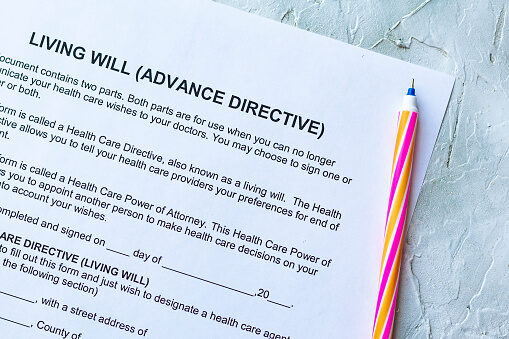- FREE WORKSHOPS - SIGN UP TODAY!
Estate Planning Precautions for Blended Families

Managing Your Loved One’s Legal Needs
July 11, 2023
The Five Year Probate Battle Over Aretha Franklin’s Estate
August 8, 2023Estate Planning for blended families can present unique challenges. When either spouse brings children from a previous marriage it can affect how one wants their assets distributed. It becomes even more complex when there are stepchildren from both parties and also mutual children. Complications arise when the desire to provide for one’s previous and/or mutual children is greater than the desire to provide for the children from a previous marriage.
For example, if all of an estate’s assets are left to the new spouse, the children from a previous marriage may not be provided for in the manner the deceased spouse would have wanted. After all, there is no legal obligation to support stepchildren. Furthermore, the surviving spouse might, upon his or her death, leave all the assets to his or her children, thereby excluding the children of the spouse who passed away first. Similarly, if assets are left only to prior children at the death of their parent, there may not be enough assets remaining in the estate to provide for the current spouse or family.
Even with a harmonious blended family, failure to create and implement an estate plan may lead to unforeseen problems. In situations where death occurs without a will or trust in place, statutory intestacy rules may remove up to two-thirds of the deceased spouse’s estate from the current marriage and give it to the children from the previous marriage. This can happen even if the prior children are now adults and have less need for the assets than the spouse and minor children of the current marriage. In situations where the prior children are minors, an ex-spouse might be able to gain control of the assets. At the very least, each spouse in a blended family should have a will. Without one, assets will more than likely be distributed to heirs in a manner contrary to what the deceased spouse would have wanted.
A properly designed and adequately funded trust, or a combination of trusts, is a much better approach than a will for blended families. This approach can provide for the surviving spouse while ensuring a portion of the assets go to children from the previous marriage.
Now let’s discuss some specific trusts that you might want to consider.
One such trust, which provides an excellent form of asset protection, is called a Qualified Terminable Interest Property Trust (QTIP). The QTIP trust can generate income for the benefit of the surviving spouse during his or her lifetime. When the surviving spouse passes away, the QTIP’s assets can be distributed between mutual and prior children according to the wishes of the previously deceased spouse. In addition, if the children from the previous marriage are young, assets from the QTIP Trust can be held in another trust for the children, under the control of an independent trustee. This can prevent the assets from falling under an ex-spouse’s control.
You might also want to consider a Long-Term Discretionary Trust (LTD Trust) to administer your children’s inheritance, with a party of your choosing serving as trustee. In this way, even if your children reside with your ex-spouse, your trustee will control the inheritance through the LTD Trust and ensure it is used only for your children. Should one of your children predecease your ex-spouse, the inheritance would remain in your LTD Trust for your grandchildren and, if there are none, for your surviving children or other beneficiaries of your own selection. An LTD Trust can also protect your children’s inheritance from their own poor decisions. For example, through Spendthrift Provisions contained in your LTD Trust, the inheritance may be protected against the reckless spending of inherited assets, divorces, lawsuits and bankruptcies.
Another tool to consider, one capable of minimizing estate taxes, is an Estate Tax Exemption Trust (ETE Trust). This will shelter the maximum available exemption amount upon your death for the enjoyment of your loved ones and is often used in conjunction with the QTIP Trust for the benefit of your new spouse.
To learn more about the unique planning problems associated with blended families, and how we can help avoid future complications, call or text us at 989-872-5601 to schedule a consultation.




